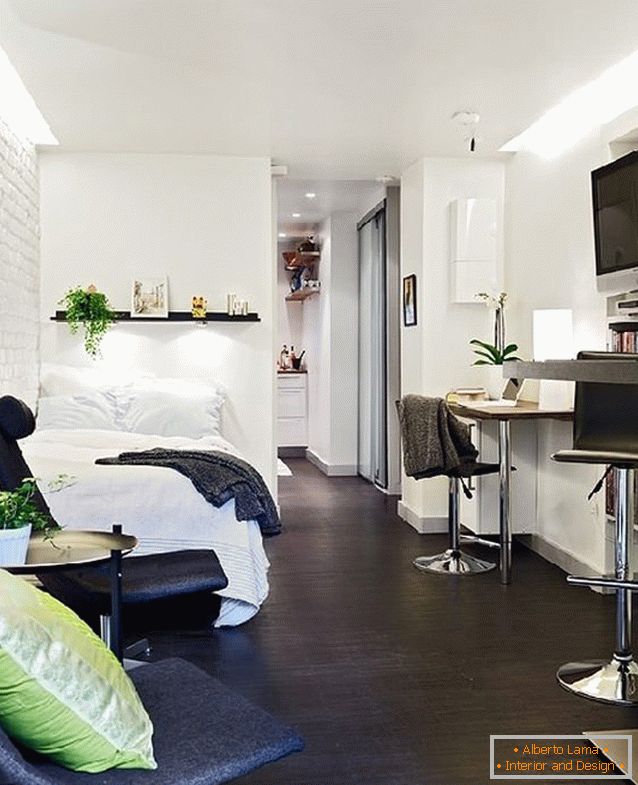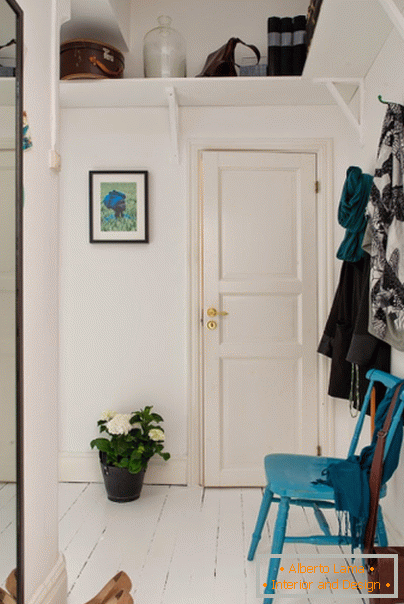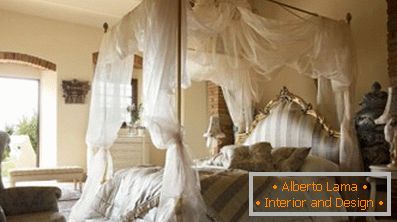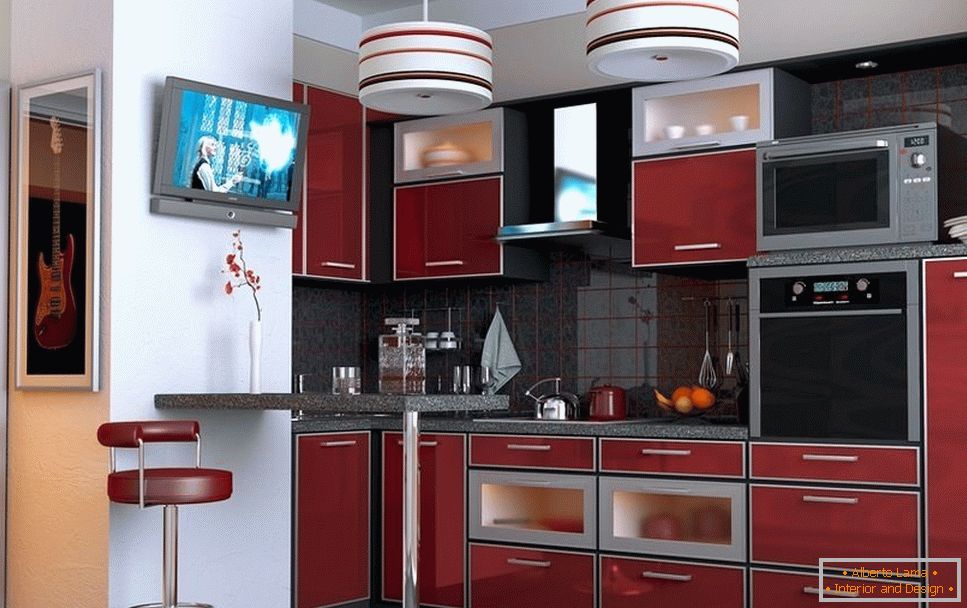
The vent of the ventilation shaft in the kitchen is a little difficult for experienced designers, and beginners sometimes do not even know what to do with it at all. Most often in this case, design latent ventilation, build a false fireplace or column, depending on the location of this architectural element. The original design of the kitchen with a vent box rightfully claims a special uniqueness, because there are a lot of options for its finishing, successful masking.
- galvanized metal - used in residential and non-residential premises, the element is durable, corrosion resistant, lightweight, has a rectangular or circular cross-section;
- asbestos-cement slabs - are used very rarely in modern times, as the material is too heavy, and the design has a low tightness;
- reinforced concrete blocks - these elements have special holes, for the arrangement of natural ventilation ducts, have high strength, are designed before construction;
- PVC - is used most often for the organization of air ducts for kitchens, rugged, cheap, resistant to aggressive environment, almost noiseless, easy to install, available in various shapes, sizes, colors, but has low fire resistance.
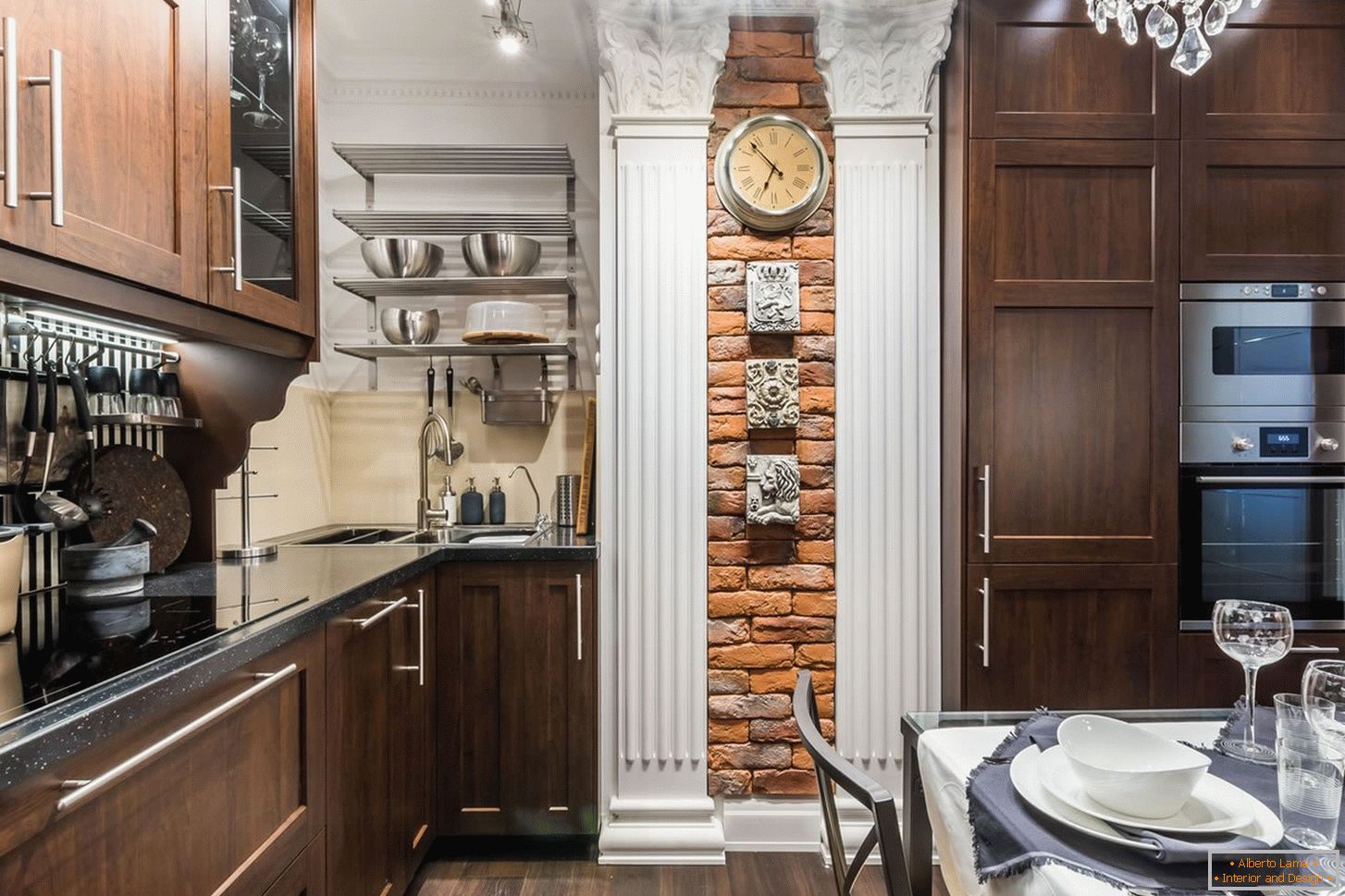
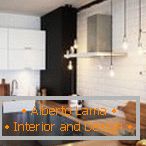
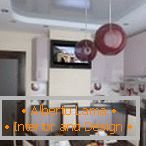
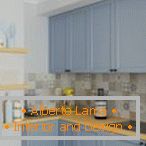
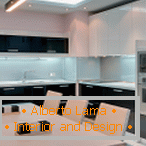
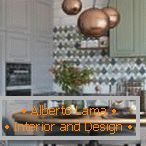
Independent reconstruction of the box threatens to damage the air duct system and, as a consequence, a solid fine. For re-planning or dismantling, you will need to obtain a special permit.
Features of location, shape, dimensions
In the apartments of the P-44T series, in contrast to their predecessors P-44, the ventilation box is not standard - in the corridor. Multi-section high-rise buildings of KOPE, P-111M, P-55M and many other types were equipped with natural exhaust systems through ventilation units located in sanitary units and kitchens. The area of the kitchen space in the houses of the P44 series is 8-10 square meters, but the voluminous box, the pipes, make the space narrower. Inside the structure, there are two or three channels through which air containing dust, the products of combustion "stretch" out of the apartment. The ventilation ducts consist of horizontal, vertical sections. The influx of fresh air occurs when airing through an open window. Often in the houses are put plastic ventilation elements, with different internal section, round, rectangular shape. The most common are round ones having a diameter:
- 80 mm, section of 50.3 square meters. cm.;
- 100 mm and 78.5 square meters. see accordingly;
- 125 mm and 122.7 square meters. cm.;
- 150 mm and 176.7 square meters. cm.
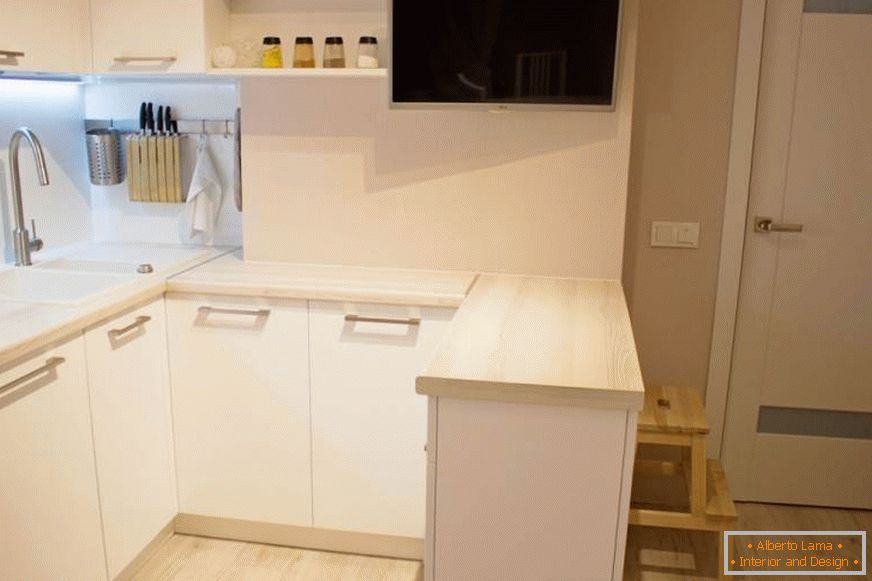
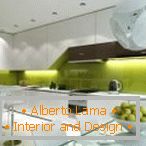
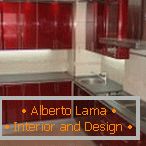
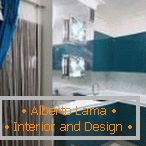
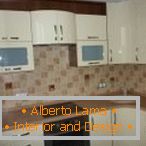
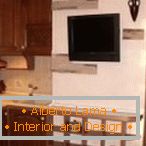
Rectangular ventilation systems are easier to place in the interior, above the kitchen set, behind the stretch ceiling. Their usual sizes are:
- 110 by 55 mm, section of 60.5 square meters. cm.;
- 120 by 60 mm and 72 square meters. cm.;
- 204 by 60 mm and 122.4 square meters. cm.
The box itself is made rectangular or irregularly shaped, and is located in the corner to the right, or the center of the room, less often - at the very entrance to the kitchen. To avoid freezing, the accumulation of excess moisture, the ventilation system is located only inside the premises.
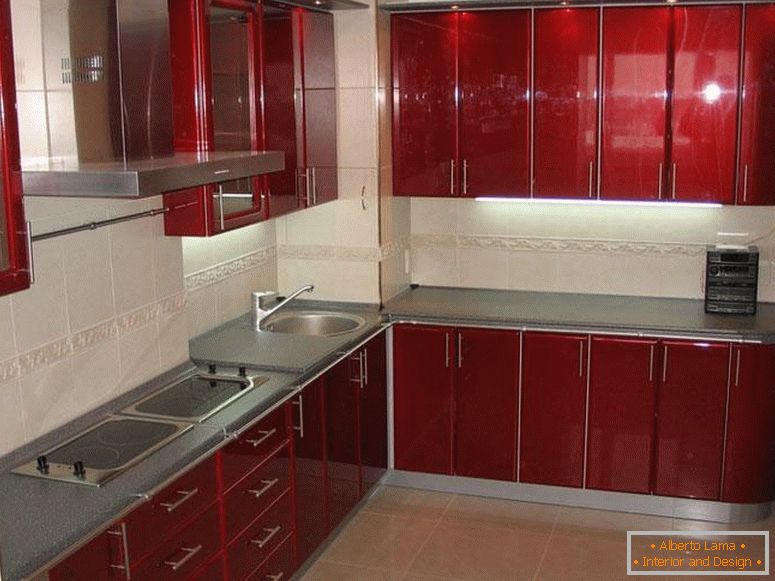
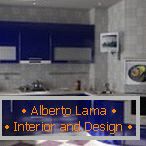
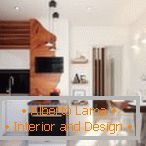
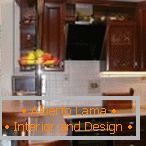
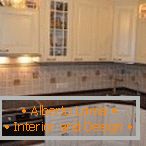
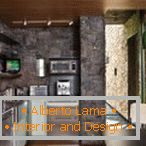
A wide range of colors of pipes will allow to choose a design for any interior, and for complex shapes tees, adapters, other elements are provided.
What to consider when finishing
The box in the kitchen is usually angled, where most of the communications pass - so accurately fit into the interior quite easily. Rarely is it in the middle of one of the walls, then hiding the element is a bit more complicated.
When decorating this design it is important to take into account:
- dimensions of the box;
- place of its placement;
- place in the general project;
- materials of manufacture;
- stylistic design of the kitchen;
- desired financial costs.
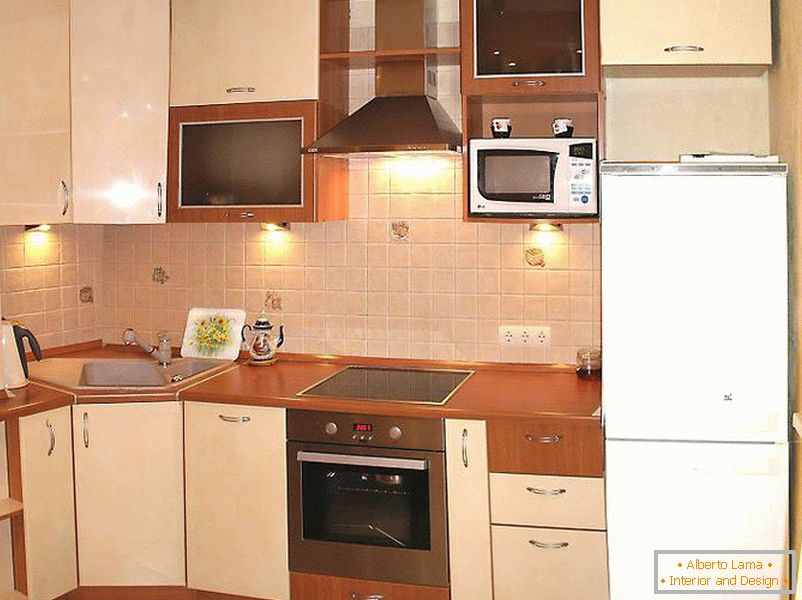
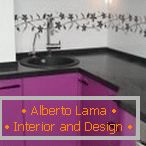
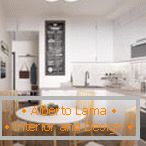
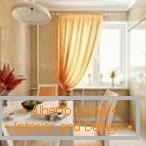
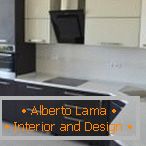
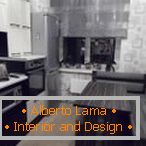
When designing the kitchen design, you should choose the finish, depending on the location of the ventilation structure. When located in the area of the gas stove, it is prohibited to finish with paper wallpaper, vinyl siding, as this is excessively combustible material. When this element is located next to the sink, decorative plaster, wallpaper, other than special waterproof ones, is not recommended.
When the box itself is not present, but through the whole kitchen along the ceiling there are communication pipes, it is carried out independently from plasterboard or metal.
Methods of camouflage
Masking the design is possible in different ways:
- "Hide" behind the facade of the headset - if the configuration of furniture allows;
- to issue various functional elements;
- cover with plasterboard, plastic decorations;
- submit as a central "highlight" of the interior;
- make it almost invisible or divert attention with a bright decor.
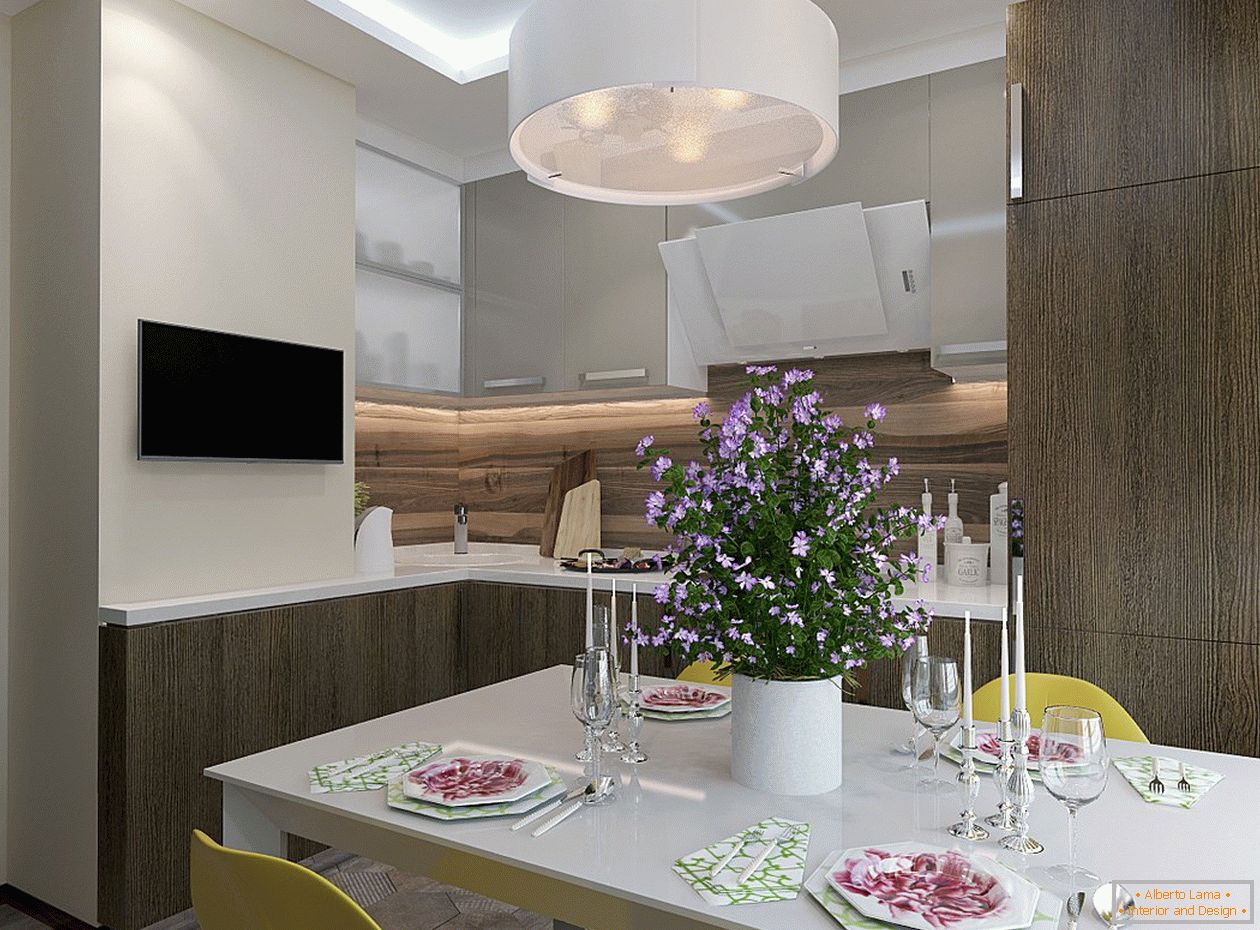
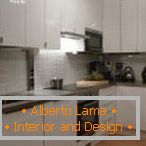
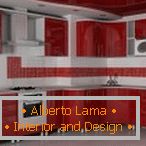
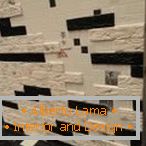
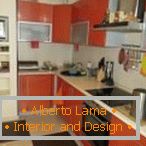
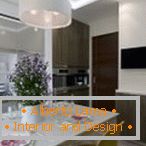
The combination of two or three methods of camouflage simultaneously, will create a cozy, original interior. If you want to distract attention from the above-described element, while visually expanding the room, different light techniques are used. For example, a volumetric luminaire is mounted directly on the box or vice versa, its location is obscured, brightly illuminating the other significant elements.
For kitchen decoration in the style of industrial, techno, art-confidence to mask the ventilation box is not necessary - it is an individual feature of the room. For the loft style, all components of the design are specially emphasized, highlighted in color, texture.
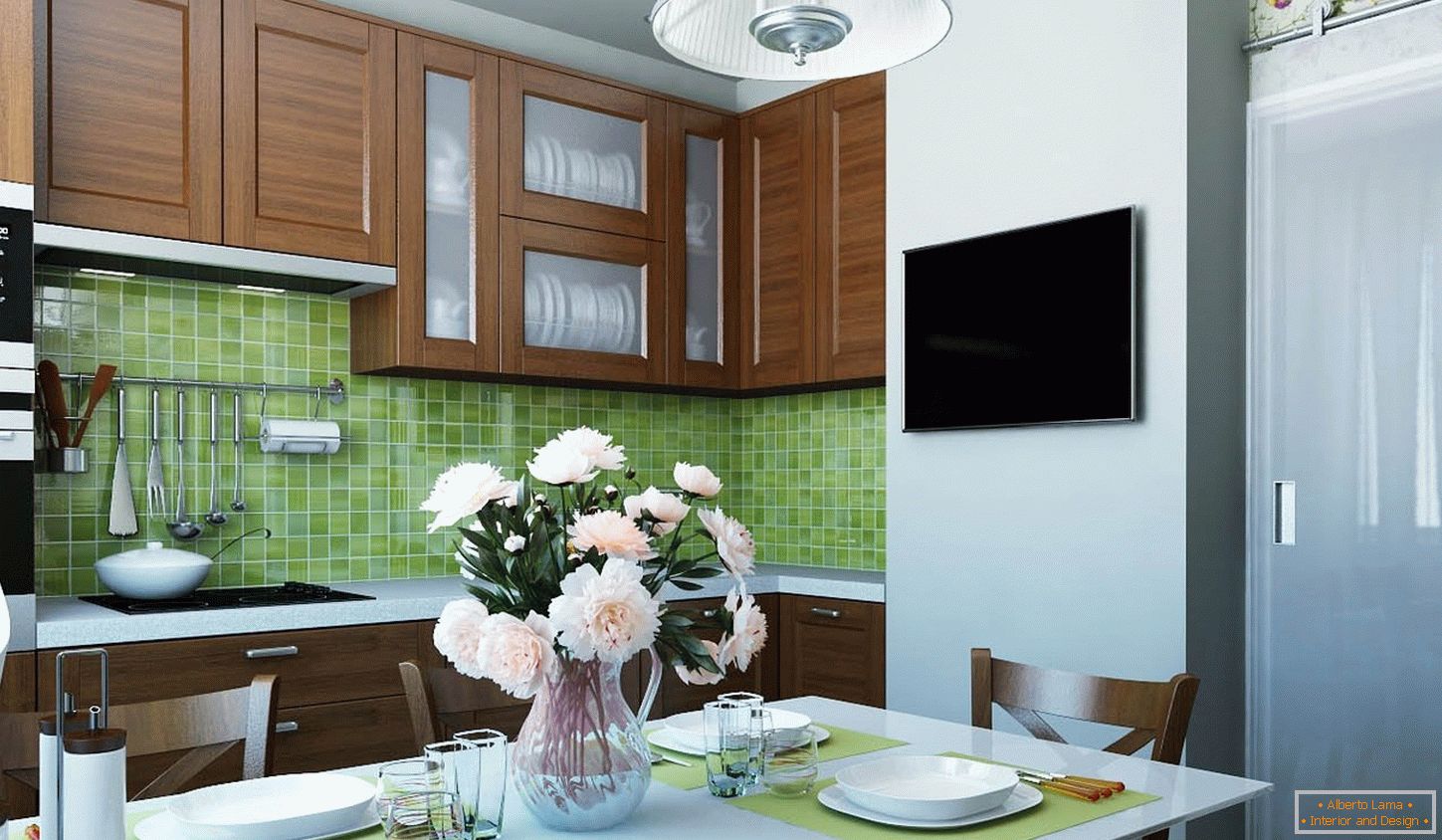
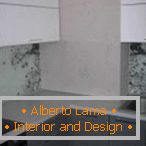
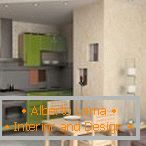
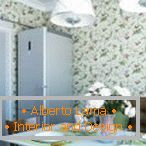
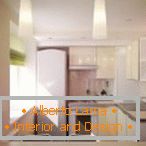
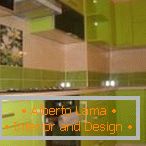
Custom made kitchen set
If there is a volumetric ventilation system, sometimes it is required to make custom-made kitchen furniture. It is performed taking into account the shape, size, depth, location of the structure, often almost completely concealing the necessary elements. In this case, the specialist measures all relevant details, takes into account the form of the room. If the space allows, individual elements are made sufficiently voluminous - for kitchens with a bay window or combined with a heated balcony it is quite acceptable. Then the table top gently rounds the box, passing into the window sill or forming a bar counter. When the box is located in one of the corners, it is recommended to put the kitchen along one wall, preferably longer. L-shaped set is suitable for a very small kitchenette, the architectural protrusion then will be formed by a shallow floor cabinet, the same hanging, having, for the most part, decorative purpose. Less often the box "hides" completely behind the doors of one of the cabinets-pencil cases, but the expediency of such an element raises many questions.
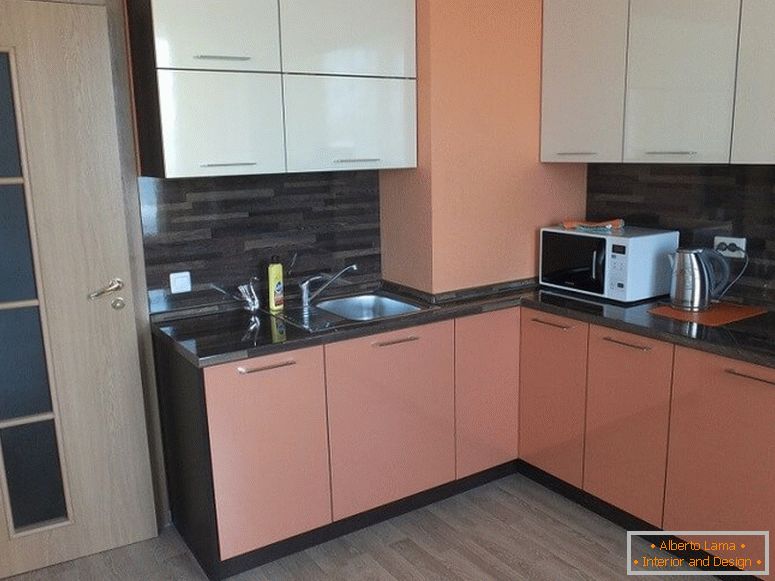
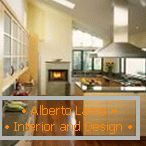
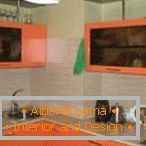
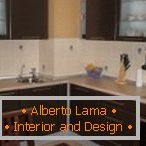
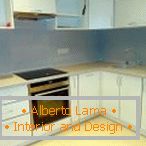
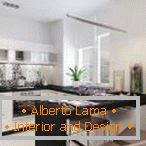
Functional disguise
Depending on the design of the kitchen, the box is made:
- a lot of shelves - they place souvenirs, jars with seasonings, spices, cereals, small items of dishes;
- bracket for the TV or a small screen mount directly to the box;
- bar counter in the dining area - it is convenient if the box is located at the entrance, then it hangs various pictures, wallpapers;
- a portal of a false fireplace or an imitation of a window, which will give the impression that the ledge is not there by chance.
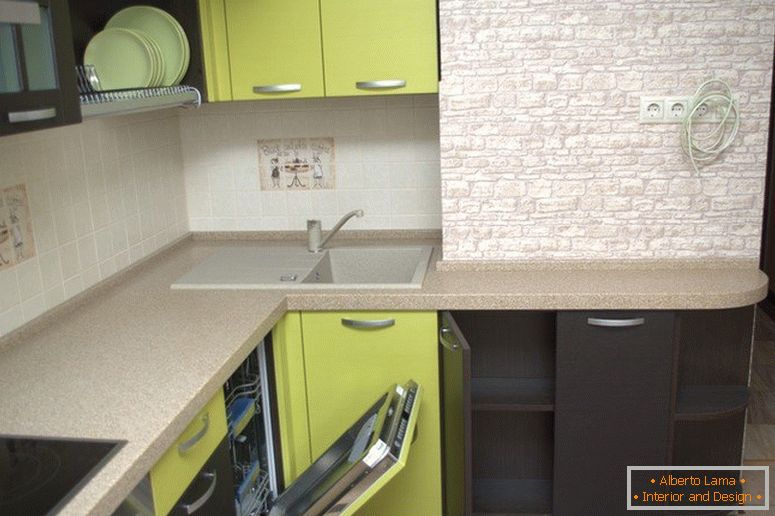
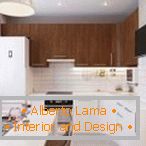
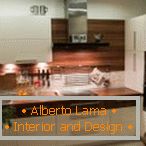
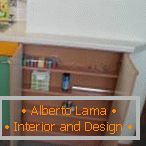
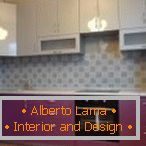
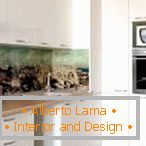
The TV should not be placed in the vicinity of a gas stove or a sink, since the probability of failure of such equipment is very high there, due to high humidity and temperature.
Variants of decorative camouflage
There are many options for not functional, but very aesthetic design:
- antique column - this kind of decoration is suitable for apartment design in the Mediterranean style. From materials natural or artificial stone, decorative tile, plaster molding is welcomed. The column is located immediately in front of the vertical of the box, corresponding to it in width;
- a niche made of plasterboard - made from floor to ceiling, the box slightly increases, which makes it possible to make it an open or closed cabinet for kitchen trifles;
- the central element - for the loft style the design is made up with panels for white or red brick, hi-tech accepts mirror tiles or frosted glass, baroque - small color mosaic;
- the design of a homogeneous material - the box and the surrounding walls are covered with the same tile, painted with one paint or wallpaper. So the protrusion becomes quite unobtrusive;
- union with the kitchen apron - a horizontal strip passes through the box, which is a continuation of the apron, is faced equally with it;
- decorating with artificial stone or tiles "for brick" - suitable for a classic interior style, the design is completely encased or individual bright elements are executed;
- slate board - the element is made of dark material, on which it can be written with chalk or made of metal, then it is decorated with decorative magnets;
- patterns, ornaments - suitable for country styles, oriental. The design is decorated with hand-painted, rustic motifs, Chinese hieroglyphics. On one of the planes fasten hooks for towels, potholders.
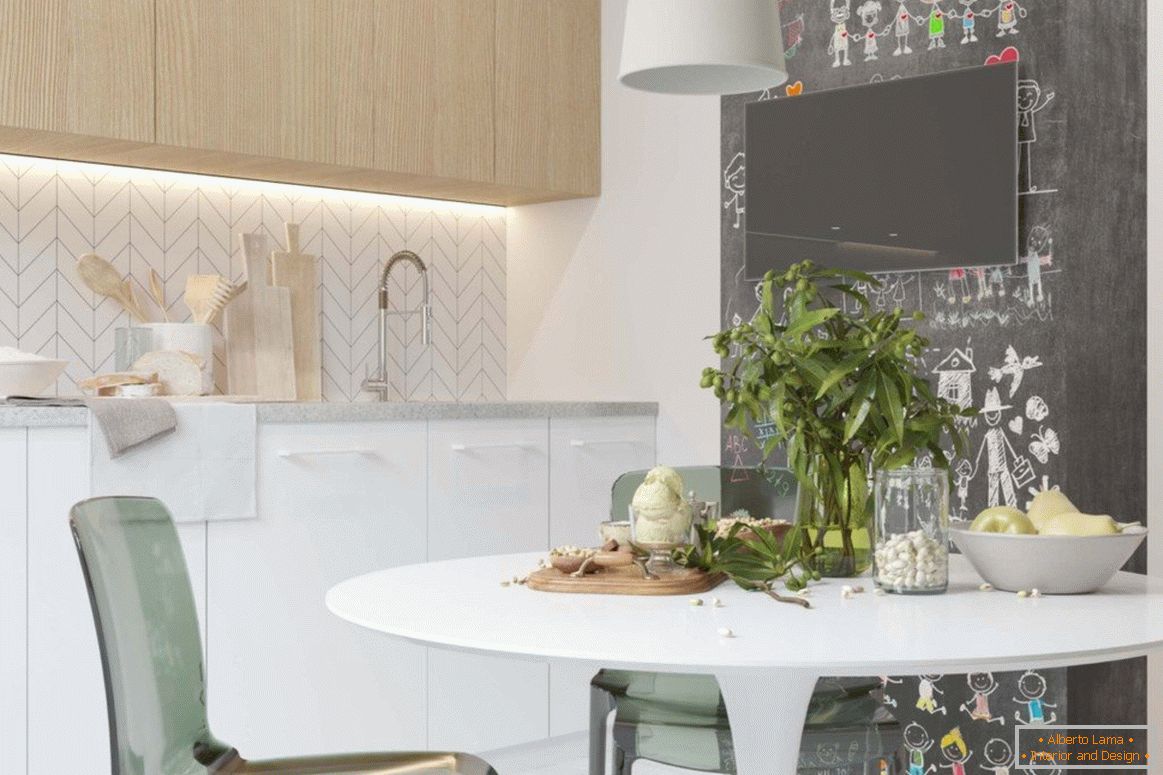
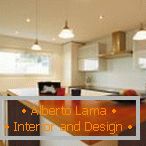
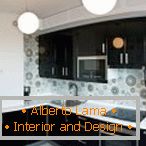
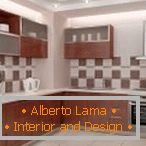
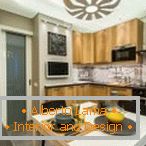
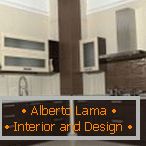
Conclusion
The kitchen is a multifunctional room, it is important to equip it with maximum comfort and aesthetics. There are many design ideas, how to decorate, hide the ventcorobe in small or large kitchens. When independent design does not work out, there are multiple technical and aesthetic questions, on this account, one should turn to a professional designer with experience in the planning of apartments with different types of exhaust system.

